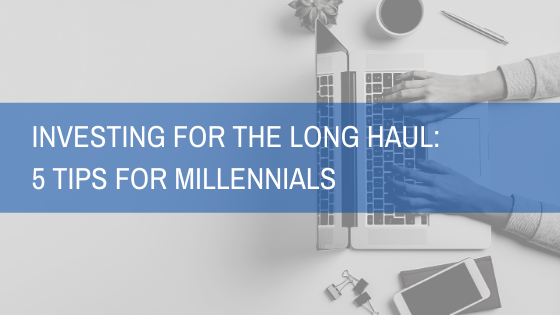

As Millennials establish themselves in their careers and as adults, now is the time for these 20- and 30-year-olds to begin investing. Developing a lifelong process of saving and investing for the future is the key to this generation’s long-term financial independence. If you’re a Millennial and unsure of how to invest wisely, here are five tips to get you started.
- Start Immediately to Maximize Compound Interest
What you invest in generally isn’t nearly as important as when you invest — and the right time to start investing is now if you haven’t already. The earlier you begin laying aside money, the more time you’ll have to take advantage of compound interest.
Compound interest is the principle that you’ll earn interest on your earned interest. When an investment is left alone for years and decades, the simple concept can become a powerful savings tool.
The key to making compound interest work for you, though is time. Thus, get started investing now even if that requires making some sacrifices in your current situation.
- Build a Habit of Consistently Saving
Once you’re saving and investing money, the next step is to make sure you continue saving even when times get tough. You can too easily stop saving when finances become tight if you haven’t already developed the discipline of always putting some money aside for savings.
One easy way you can help develop this discipline is to set up an automatic transfer to savings. If a payment from your checking account or paycheck goes directly into an investment, you’ll be much less tempted to redirect that money somewhere else.
- Avoid Touching Your Saved Money
When tough financial times strike, and they will, avoid touching your saved money whenever possible. If you do pull money out of savings, you’ll not only deplete your nest egg — but will also miss out on compound interest and might have to pay a tax penalty. Working a little extra or cutting a superfluous expense are much more preferable solutions.
- Maximize Any Available Employer Match
Many employers offer a 401(k) that has a company match. When offered, a match means that the employer will put in a certain amount for every dollar that the employee puts into the account.
There’s usually a maximum on how much your employer will contribute and not all employees receive this benefit. If your compensation package includes a 401(k) that has an employer match, however, take full advantage of it. The match is essentially free money for your savings.
- Take Advantage of Tax-Advantaged Accounts
No matter what your employment situation is, almost everyone can take advantage of tax-advantaged accounts. Roth IRAs, IRAs, 529 Plans and ESAs are just a few of the more common ones to ask your financial professional about.
Important Disclosures
The opinions voiced in this material are for general information only and are not intended to provide specific advice or recommendations for any individual. To determine which investment(s) may be appropriate for you, consult your financial professional prior to investing. All performance referenced is historical and is no guarantee of future results. All indices are unmanaged and cannot be invested into directly.
The information provided is not intended to be a substitute for specific individualized tax planning or legal advice. We suggest that you consult with a qualified tax or legal advisor.
LPL Financial Representatives offer access to Trust Services through The Private Trust Company N.A., an affiliate of LPL Financial.
LPL Tracking #1-922289

